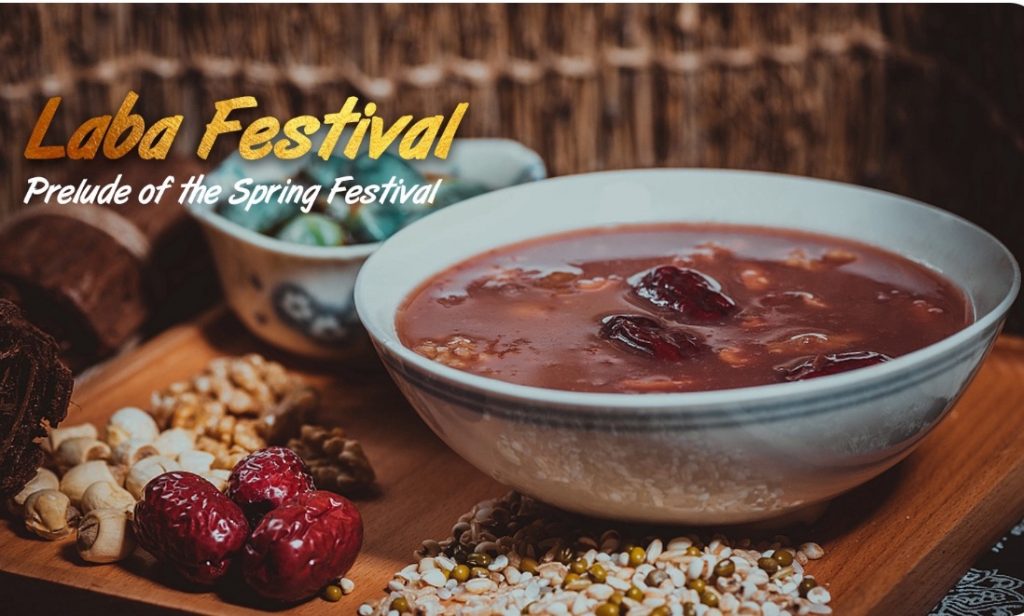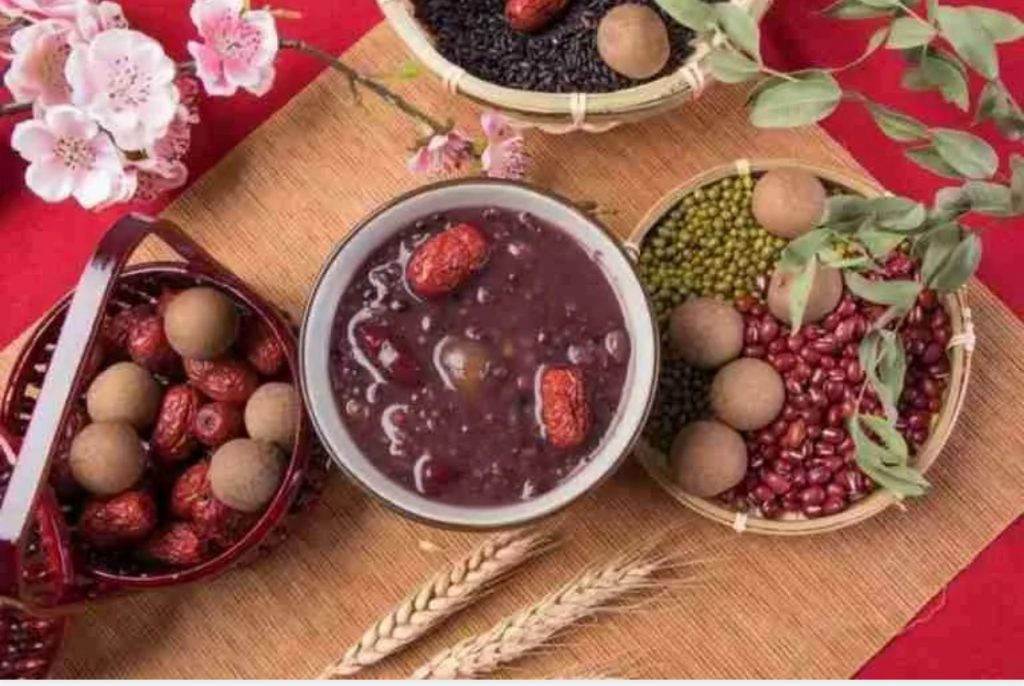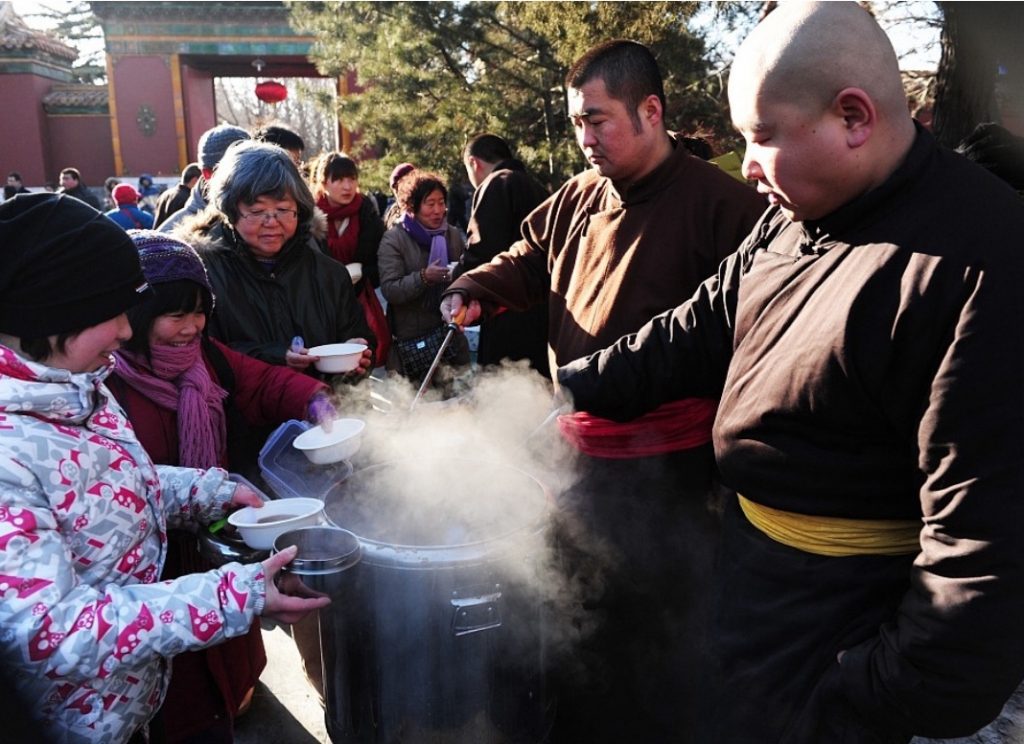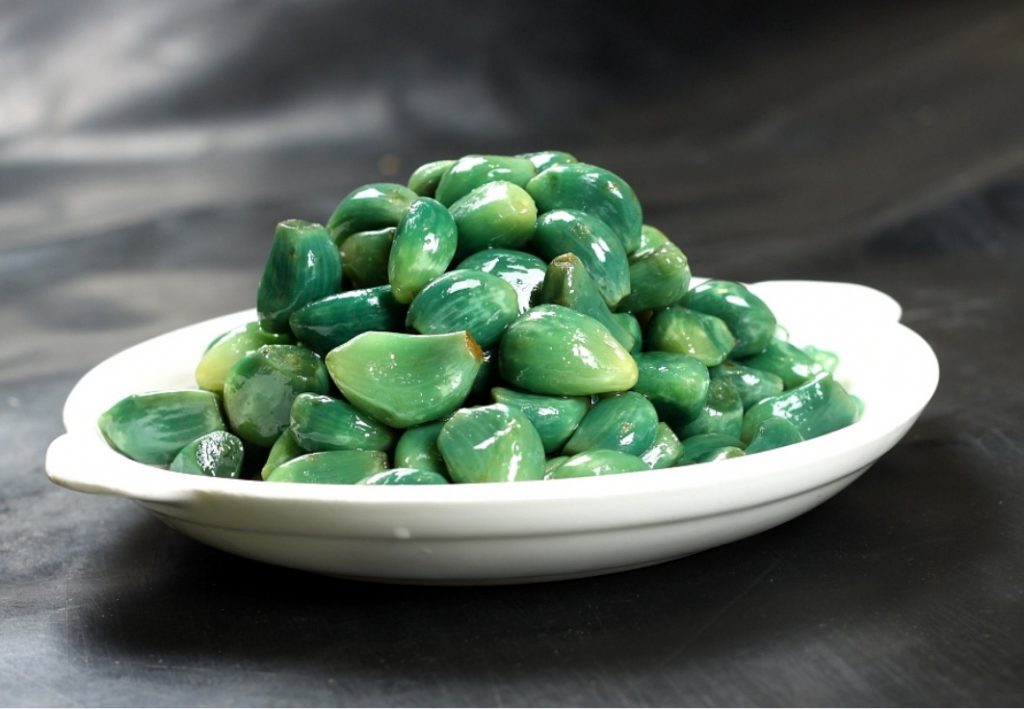
Here in Beijing there are the earliest signs of Spring. The extreme cold weather of the last month seems to be leaving us at last. The frozen snow and ice which has lingered since the snowfalls are retreating to smaller and smaller corners of the streets. And if you look carefully enough the trembling first buds of regrowth are braving the chill air along the bare boughs. Human faces are becoming visible again as we start to peel away some of the layers of winter protection. We have come through!
And here to greet us today, the 18th of January is Laba, the festival of the eight day of the twelfth month of the lunar calendar. Laba, the sign that Spring Festival will soon be here! The traditional food of Laba is porridge and as I write this on Laba morning all across China friends and families are sharing greetings with porridge bowl stickers! Let’s find out a little more about this event and why it means so much to the Chinese people.
Everything in China seems to have a long, long history, and Laba is no different. The origins of Laba lie in the depths of Chinese time. We have to go back to the Shang Dynasty, which is dated from 1766–1122 BCE, and can be considered a Chinese Bronze Age. Just like in Britain this was a time when many beliefs which last even until today began. ‘La’ was a time of ritual and sacrifice to prepare the Earth for the return of the new growing season in Spring.
Laba has evolved over the centuries. By the Song Dynasty rituals involving ancestor worship had become important at their time. It is also from this time that we find the earliest mentions of Laba porridge which even today is the most important ingredient of the festival.

Laba porridge, also known as “Buddha porridge”, is made of a variety of ingredients, including rice, millet, corn, barley, red dates, lotus seeds, peanuts, and various beans (such as red beans, mung beans, soybeans, black beans, kidney beans, etc.). It is clearly a very hearty and nutritious meal – just what you need to keep you going through to Spring Festival!
There is a reason for the alternative name ‘Buddha Porridge’. According to a legend Laba porridge was a religious festival food of Buddhism that originated in India. Gautama Buddha, the founder of Buddhism, once starved and met a village girl who gave him porridge. He attained enlightenment on the eighth day of the 12th lunar month. After Buddhism was introduced into China, on the eighth day of the 12th lunar month of each year, porridge was used as a charity food for the hungry.
Today you will see queues of people waiting patiently at the gates of local Buddhist temples to share a warm steaming bowl of blessings.

Another culinary treat associated with Laba is garlic. In northern China, it is a tradition to soak garlic in vinegar for the Laba Festival to make a dish known as Laba garlic. The garlic turns emerald green after more than 20 days, just in time for Spring Festival. The Laba garlic is then eaten with dumplings on the eve of the Spring Festival.

As England shivers in the grip of another bout of snow, I hope it’s some comfort to read about the return of Spring from our friends in China.
I wish you all 腊八 快乐! Happy Laba!
(All images courtesy of our friends at CGTN)